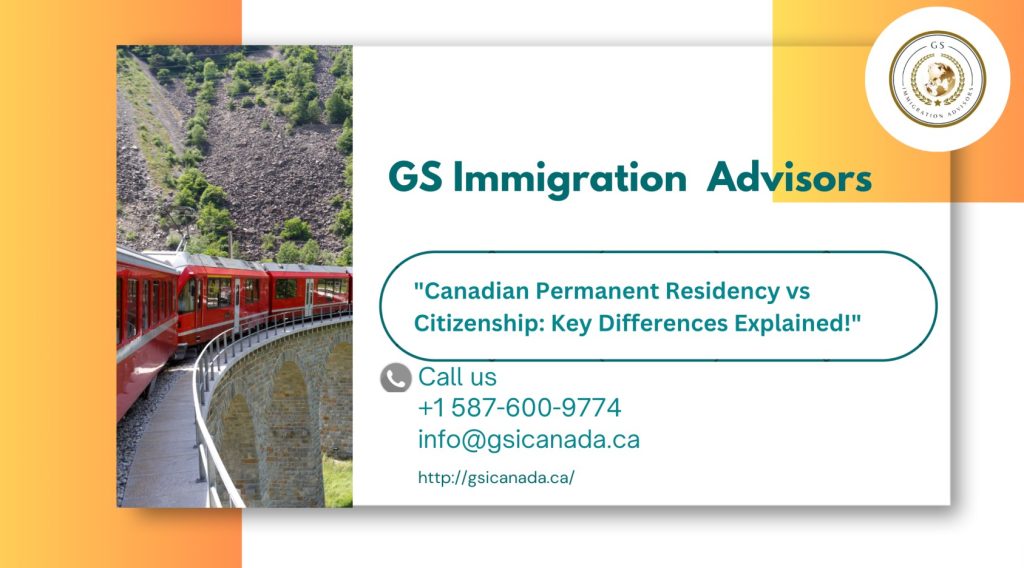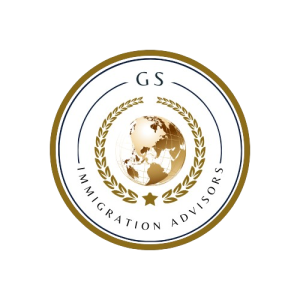
Permanent residents (PRs) in Canada are granted many of the same rights as citizens, including the capacity to remain, work, study, and make investments in the nation. There are, nevertheless, a few differences between the two.
A person who immigrated to Canada and was granted PR status is not a citizen; rather, they are a Permanent Resident. In addition to being able to vote and take part in the democratic process of the nation, citizens also have the chance to hold a Canadian passport. Making educated judgments regarding long-term goals in Canada can be facilitated for individuals involved in the process by being aware of the distinctions between the two.
The following are the primary distinctions between citizenship and permanent residence in Canada:
Democratic involvement
Voting and running for political office are prohibited for permanent residents. This implies that, in comparison to Canadian citizens, they have less influence over leadership and policy.
Holding particular positions
Permanent residents are permitted to work in Canada without a work permit, however they are not permitted to work in certain positions that call for a high degree of security clearance.
Status based on place of residence
Permanent residents must have spent at least 730 days physically present in Canada during the previous five years in order to maintain their status as permanent residents. They don’t have to meet this requirement every day, but failing to do so could result in them losing their PR status.
Conversely, citizens are not subject to this kind of limitation.
Travel benefits
A PR card entitles holders to travel inside Canada. For brief visits, a number of nations grant Canadian permanent residents a visa-free entry.
On the other hand, one of the strongest passports in the world is available to Canadian citizens. Henley & Partners reports that as of 2024, Canadians will be able to visit 187 countries without a visa. The possession of a Canadian passport has additional advantages. Canadian Canadians are able to pursue dual citizenship and investigate employment and study opportunities elsewhere. While overseas, they can also get diplomatic assistance from Canadian consulates.
Easy access to and stability in Canada
A Canadian permanent resident may, under exceptional circumstances, lose their status and become ineligible to enter or remain in the nation.
This may occur if they give up their status or if they are denied entry into Canada (which may occur for security or criminal reasons).
Removing a Canadian citizen’s citizenship, however, is incredibly uncommon and only occurs in cases where the citizenship was initially acquired by fraud or deception.
Granting children citizenship
A child born in Canada to a permanent resident is automatically granted Canadian citizenship. Nonetheless, children born outside of Canada to permanent residents do not necessarily inherit their parent’s immigration status. If they are eligible for sponsorship and their child is eligible to be sponsored as a dependent, they can seek to sponsor their child.
In the meanwhile, children typically inherit their citizenship. The first-generation limit (FGL) that exists in Canada currently states that a child of a Canadian citizen who was born outside the nation does not automatically become a citizen. The option for Canadians born overseas to transfer their citizenship to their children born abroad will be possible with the current amendment to this rule, subject to certain restrictions. Currently, December 19 is the deadline for changing this rule.
Key differences between PR and citizenship
| Canadian PR | Canadian Citizen | |
|---|---|---|
| Right to vote | No | Yes |
| Right to run for office | No | Yes |
| Right to work | Yes—with exception of certain jobs requiring high-level security clearance | Yes |
| Right to open bank accounts and invest | Yes | Yes |
| Canadian passport | No | Yes |
| Right to live indefinitely in the country | Yes—with a valid PR card | Yes |
| Can travel freely | Only those countries accessible through PR card and country of nationality | Yes to all countries accessible through Canadian passport |
| Guaranteed to be able to enter Canada | No in case of inadmissibility | Yes |
| Right to pass status to children born outside the country | No | Yes, if parent is also born in Canada |
